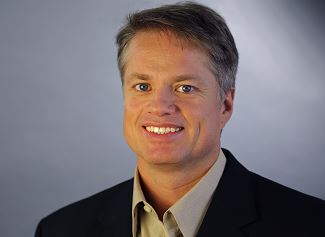AMAC Symposium Speaker Calls for Better Overall Patient Welfare Focus

Marc O’Connor, Curant Health Chief Operating Officer, told the AMAC Health Care Symposium audience last month in Washington that most health care providers were more concerned with payment for their services or products than for the welfare of patients.
Contrary to this fact, O’Connor pointed out that Curant Health, a transformational health care company, focuses on improving patient outcomes while reducing health care spending. “Patients are the forgotten people in the health care equation. The health care stakeholders are more interested in compensation rather than the patient’s welfare.”
O’Connor delineated the role of the various stakeholders in the health care system as:
- Benefit Managers, who are at the center of patient care, are more concerned with procedural issues than patient care outcomes. They are, in effect, third party administrators, driven primarily by financial interests.
- Fee for service Doctors, who are “hamstrung” by the volume of patients they examine daily, but they also are not necessarily outcome driven. Their focus is on prescribing a potential solution to the problem at hand. He equated doctors as being like a mini-repair shop that fixes minor problems and hospitals as the big machine shop that repairs and replaces broken parts.
- Pharmacy Benefit Managers, who are integral to patient care, and are concerned with, but not compensated based on, patient outcomes. They are paid by developing a new drug or improving an old drug. He went on to point out that the U.S. actually subsidizes the world when they develop and make available new medications.
- Retail Pharmacies, who are the least compensated but who are also not outcome driven. They are considered to be a service and generally are positioned in the store to attract customers to store products.
O’Connor identified the need for health care legislation that is patient driven, rather than driven by supply and demand, and suggested that universal coverage doesn’t mean universal treatment. Further, he indicated that high deductible plans generally lead to patients getting a higher than expected bill, and suggested that of the annual U.S. health care expenditures, 8 to 14% could have been avoided.
O’Connor stressed that, while health care must treat the whole patient, health care providers don’t have the time to do so thoroughly. He suggests that the solution is in health care companies that support doctors and are concerned primarily and totally with the welfare of patients. Entities of this type would provide patients with 24-hour service, would help manage and guarantee their medication programs, and would provide co-pay assistance where required. The outcome, he observed, could be as great as a 90 percent decrease in hospital returns in 30 days.
In conclusion, O’Connor emphasized that “we must manage our health care needs, not rely on government.” The remarks delivered by Mr. O’Connor at the 2014 AMAC Foundation Health Care Symposium are available on-demand and in their entirety through the AMAC Network, a service of the Association of Mature American Citizens. Click here to access this Symposium segment.
